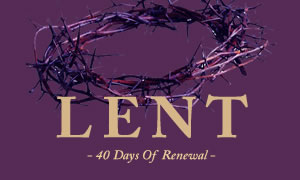


 Jesus taught his disciples most of the time by way of parables. Truths about the kingdom of God, about his love, mercy and forgiveness, and about the ultimate triumph of the righteous over the forces of evil, were all explained by means of stories that touch the heart.
Jesus taught his disciples most of the time by way of parables. Truths about the kingdom of God, about his love, mercy and forgiveness, and about the ultimate triumph of the righteous over the forces of evil, were all explained by means of stories that touch the heart.
But perhaps the most moving of these parables is the parable of the Prodigal Son which we find in Luke chapter 15. The background is as follows: Tax collectors and other categories of sinners were crowding round Jesus. They were seeking his company and eager to learn from him. The Pharisees and the Scribes however complained bitterly, saying that this man welcomes sinners and even eats with them.
For the Pharisees and Scribes the relationship of Jesus with these public sinners was a scandal. For them the righteous man should not contaminate himself by keeping the company of sinners. Sinners are lost and should stay lost. There can be no friendship between darkness and light, so God or his messenger should have nothing to do with public sinners. Indeed the Jews had laws about ritual purity that regulated the relationship of devout people with such public sinners as prostitutes and tax collectors. And the Pharisees kept those laws very strictly and they frowned at anyone who violated them.
On the occasion of the call of Matthew (in Matthew 9:9-13) a number of tax collectors and sinners were gathered at table with Jesus in the house of Matthew who himself was a tax collector. The Pharisees and scribes of course complained, and Jesus told them: “It is not the healthy who need the doctor, but the sick. Go and learn the meaning of the words: Mercy is what pleases me, not sacrifice.
And indeed I came to call not the upright, but sinners.” Thus, when on another occasion the sinners were seeking his company and the Pharisees and scribes voiced out their complain again, Jesus set out at length to teach them about the boundless love, mercy and compassion of God that is extended to everyone, including even the public sinners whom the Pharisees would wish to keep away permanently from God’s kingdom and the salvation he offers. So he told them three parables, namely, the “the lost sheep,” “the lost coin,” and “the prodigal son.” They all seek to teach a lesson on God’s love for any member of his flock who is lost due to sin, and what a great joy it is for God and for the entire hosts of heaven when such a sinner is converted and he returns to God. He or she will be like a lost treasure that is found.
The Prodigal Son story goes this way: A man had two sons. The younger one said to his father: Let me have the share of the estate that belongs to me. So the father divided his property between them. A few days later, the young man gathered all he had and left for a distant country, where he wasted his money on a life of debauchery. After he had spent it all, that country experienced famine, and he began to feel the pinch. He hired himself out to one of the local inhabitants who put him on the farm to feed the pigs. He would willingly have filled himself with the husks the pigs were eating, but no one gave him anything. So he came to his senses and said to himself: “How many of my father’s servants have all the food they want. And here I am dying of hunger. I will leave this place and go home. I will tell my father: father, I have sinned against heaven and against you. I no longer deserve to be called your son. Treat me as one of your hired servants.” Then he left the place and went back.
Now while he was still a long way off, the father saw him and was moved with pity. He ran to meet the boy. He embraced him and kissed him. The boy started his confession, but the father was not interested in his rehearsed lines. He was overwhelmed with joy to have his son back. So he ordered that the boy be dressed up like the prince that he is, with a fine robe, a pair of sandals and a ring. The fattened calf should be slaughtered, and a party should begin immediately, because his son was dead and has come back to life, he was lost and is now found. They began to celebrate.
But by this time the elder son was out in the field. On his way back as he drew near the house, he could hear the music. He asked one of the servants what was happening. He was told “Your brother has come, and your father has killed the fattened calf, because he got him safe and sound.” The boy was angry and refused to go in. So the father came out to beg him. But in answer he told his father: “All these years I have slaved for you. I never once disobeyed you. Yet you have never offered me even a kid to celebrate with my friends. But you killed our fattened calf for this son of yours, when he comes back after swallowing up your goods – he and his women!” The father then said to him: “My son, you are always with me. All I have is yours. But it was only right that we should rejoice and celebrate. Because your brother was dead and has come back to life. He was lost and is now found.”
This is a classic love story, the most beautiful love story, the story of a father who had two sons and who loved them equally and passionately. It is indeed the portrait of the God whose other name is love. Some people prefer that this story be named “the prodigal father” instead of the prodigal son, because it is more about the father’s reckless love than the son’s sinful life. It is about a father who gives and gives, expecting nothing in return. It is about unconditional love, the love that is not affected by the infidelity of the beloved. Note that the father did not listen to what the son had to say about being sorry, or wanting to be taken as a servant. No. The father’s forgiveness did not come in response to the son’s sense of repentance or contrition. The father had offered his forgiveness even before the son uttered a word.
While the son was away, alienated from him, the father continued to love him, so much so that he used to go out to gaze at the horizon, wondering, if perhaps the son will show up. No matter how far the son had gone away from him, the father’s immense love continued to nourish the hope in him that the son was not lost permanently, that he will come back. The prodigal son story is similar to the incredible love story we read about in Prophet Hosea – how God continues to love faithfully his unfaithful spouse (Hosea 3:1; 11:1-9; 14:5-9). The father is the embodiment of self-sacrifice, an example of disinterested giving.
With the story of the prodigal son, Jesus is saying to us: “See with what prodigal love the Lord loves you. Those of you who are alienated from God by virtue of a life of sin, see how reckless God’s love for you is. Those of you who do not love God, know that the Lord nevertheless loves you. Those of you who do not believe in God, know that the Lord never ceases believing in you.
Yes, those of you who live practically like atheists, or who declare yourselves atheists, know that the Lord believes in you, his love is long-suffering and persevering for you. You may consider yourself lost, and others, like the Pharisees and the Scribes may consider you lost. But his love continues to energise his hope that one day you would return. And that is why he has sent his son to die so that you may live.”
And there are many among us who behave like the elder son. They are preoccupied by the principles of strict distributive justice. They think they are God’s children because they keep the rules. They think they can earn God’s love by their conduct, and that others who are not so good do not deserve God’s attention. So they write sinners off as lost causes. But the lesson of the story is that God’s love is absolutely gratuitous. You can never earn it.
You can never be worthy of it. To be a child of God does not primarily require an attitude towards the father. You are a child of God simply because you are loved by the father, and so you continue to be so loved even when you go far away from him.
In fact the heart of God is drawn much more towards the lost son than the “faithful” one at home. So if you want to know where the God of love is each time, then read the story of the prodigal son. He is not to be found in places of honour. He is not to be found on his throne in the palace. He is to be found outside, looking into the cloudy horizon, still seeking his rebellious sons and daughters, and giving them the assurance that “all I have is yours.”


I have been thinking a great deal about my experience at Reconciliation this past Saturday. I felt an intense and unexplainable urge to go and confess my sins when I woke up that morning. I try to go every six weeks or so, but this was no routine visit to the priest for me. I needed to unburden myself of the numerous venial sins I had committed since I last participated in this Sacrament.
Purest Gold: God's Refining Fire in our Lives »
After salvation, many young Christians wonder if there's anything more to their newfound faith than just the security blanket of "being a Christian." Time and time again, God shows himself as a "refiner," and our lives are as gold. God started leading me in this study to understand what He was doing in my life, as well as in the lives of others.
Picking up my pen to write this column, I couldn’t imagine how time flies. Since the last publication of this column I have gone through a lot, especially the loss of my dear mother to whom I dedicate this article. Not only her, but seems I lost a whole generation of my close family.
How to Achieve Business Excellence »
“Do you see a man who excels in his work? He will stand before Kings; He will not stand before unknown men.” Proverbs 22:29
Spiritual Development for our Youth »
Most of us youth in today's fast moving world are easily thrown off by difficulties and worries.
The theme of conversion is a thread that runs all through Lent, but conversion takes on different aspects throughout the phases of Lent. The first two and a half weeks focused on the interior turning of hearts; the liturgy urges the faithful to reflect and examine consciences thoroughly.
Saint Josephine Bakhita »
Feast Day: February 8
Patron Saint Of: Sudan
Saint Josephine Margaret Bakhita was born around 1869 in the village of Olgossa in the Darfur region of Sudan. She was a member of the Daju people and her uncle was a tribal chief. Due to her family lineage, she grew up happy and relatively prosperous, saying that as a child, she did not know suffering.
Catholics Must Fast More Intensely This Lent»
The Norbertine Canons of St. Michael's Abbey have created this digital Lenten retreat so that you can journey through this holy season alongside them. If you want to have one of your best Lenten seasons yet, join us in our Lenten Program "The Great Fast" - https://theabbotscircle.com/the-great-fast-join
When Your Faith Is Put to the Test - Bishop Barron's Sunday Sermon»
Friends, we come now to the Second Sunday of Lent, and we’re on both dangerous and very holy ground with the first reading from the twenty-second chapter of Genesis. The ancient Israelites referred to it as the “Akedah,” which means the “binding”: Abraham binds and is ready to sacrifice Isaac at God’s command.

Copyright © 2002-2024 THE BEACON INTERNATIONAL CATHOLIC MAGAZINE. All rights reserved.
another mc.rufus interactive web design